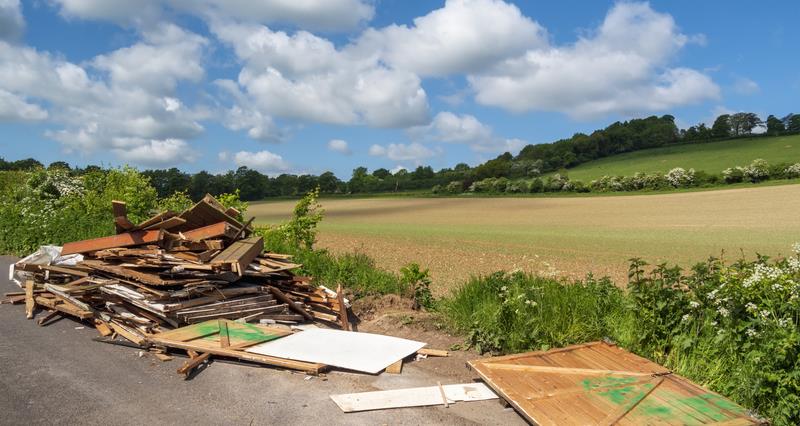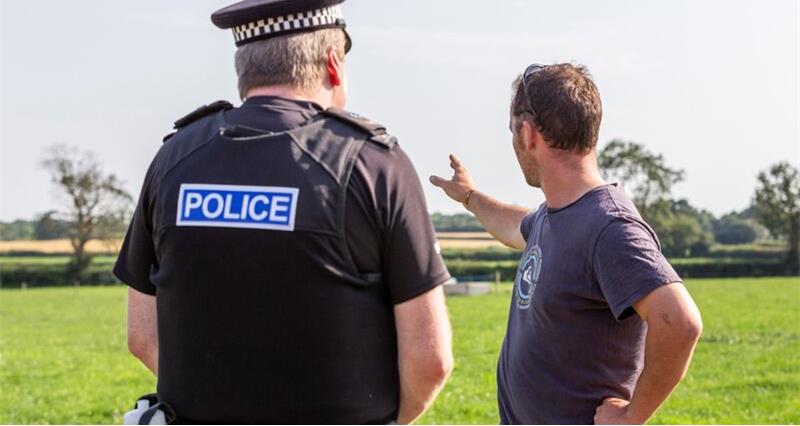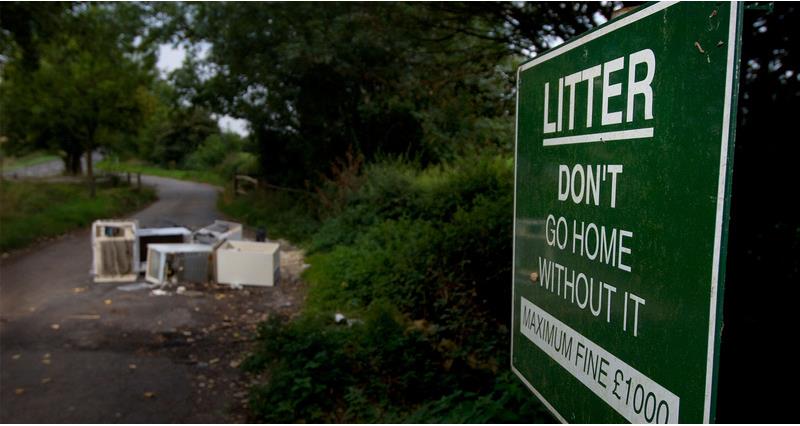The government has said it will be launching a rapid review that aims to cut red tape preventing councils from seizing and crushing vehicles.
Ministers are also considering plans that would leave fly-tippers, rather than councils, covering the costs of seizing and storing vehicles.
Councils will also be empowered to work with the police to identify, seize and crush vehicles using drones and mobile CCTV cameras to identify fly-tippers’ cars and vans.
Criminals caught transporting and dealing with waste illegally will now also face up to five years in prison under new legislation.
“It’s vital that government works with farmers and growers to deliver a consistent and properly resourced approach to tackling fly-tipping – one that supports victims rather than penalising them.”
NFU Vice President Rachel Hallos
The Environment Agency will also be carrying out identity and criminal record checks on operators in the sector, and will be receiving further funding via permits.
A blight on the countryside
Responding to the news, NFU Vice President Rachel Hallos called for the introduction of a single reporting system, which she said “would make a real difference, reducing the burden on victims”.
Fly-tipping is currently reported through multiple channels, depending on the nature and scale of the incident. For most cases, landowners are advised to contact their local council. However, if the waste is hazardous or of significant volume, the Environment Agency should be notified. Additionally, incidents can be . »ĘĽŇ»ŞČËalso encourages farmers and landowners to share their experiences via the NFU’s incident form to help demonstrate the scale of the issue to both local and national government.
Rachel added: “And while some areas see good collaboration between police, local authorities, landowners and the Environment Agency, we need that joined-up approach on prevention, clean-up and prosecution everywhere.
“It’s vital that government works with farmers and growers to deliver a consistent and properly resourced approach to tackling fly-tipping – one that supports victims rather than penalising them.
“Fly-tipping is a serious and growing problem in the countryside, blighting rural areas, endangering livestock and costing farmers time and money to clear up.”Â
Counting the cost
¶Ů±đ´Ú°ů˛ąâ€™s latest fly-tipping stats found that cases rose by 6%, from 1.08 million in 2022/23 to 1.15 million in 2023/24, with the cost of clearance to local authorities in England totalling ÂŁ13.1 million.
Announcing the measures, Defra Secretary Steve Reed said: “Waste criminals and fly-tippers who blight our towns and villages have gone unpunished for too long.
“That ends today. The Government is calling time on fly-tipping. I will not stand by while this avalanche of rubbish buries our communities.”



